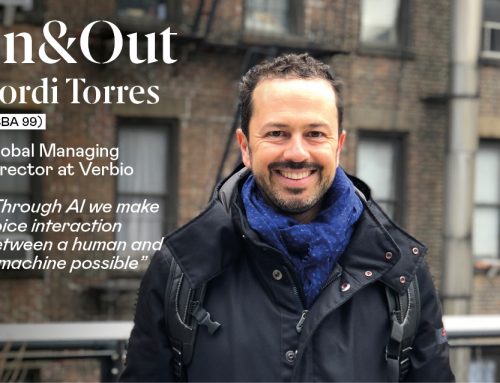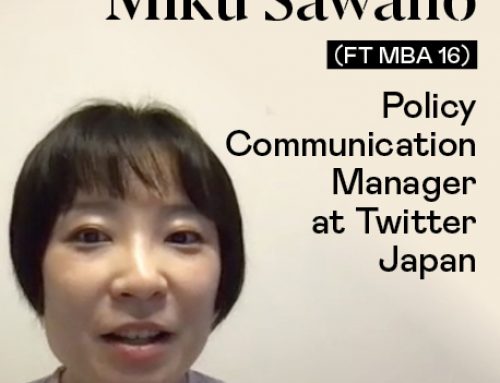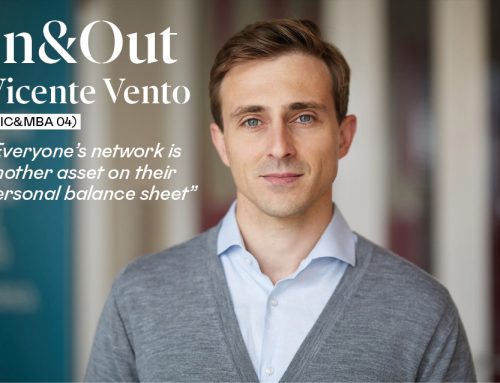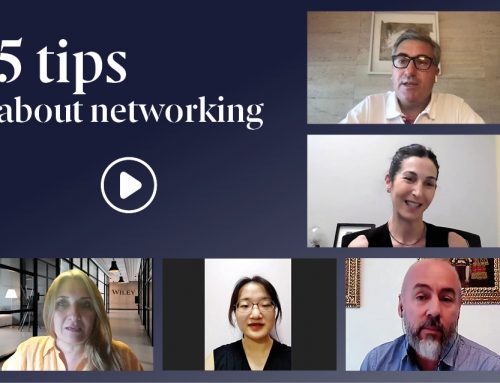Stefan van Tulder (MMM 13), Founder of Talent Data Labs
TDL is a Singapore-based start-up that works on creating the most accurate prediction and recommendation system for “career fit”. For its Founder, Stefan van Tulder, data will lead the way into helping people make better decisions and to be more focused. “All we want to do is to create a place where good scientifically backed advice is given”.
-Talent Data Labs, your company, develops talent-data analytics. What tools do you use?
We have a tremendous database with years of research on talent and what makes them successfully perform in various kinds of environments. Over time we have built and validated some predictive tools such as “cultural matching” and a “5-factor personality test” to assess the work-style of an individual and compares that with the organizational environments this individual could end up in. On top of that we built scraping and crawling software to extract the skills and behaviours of professionals from the Internet at large.
We believe that through mapping attributes such as culture, skills, and preferences we can recommend people to organisations and vice versa. Moreover, using those attributes is relatively free from bias and makes our recommendations more objective.
-What is the status of the project? What are the objectives?
Currently, we are bootstrapped and have started billing a group of clients for some talent analytics projects and are therefore in a very early growth stage. However, we would like to believe that a company such as ours will indefinitely maintain a “student mind-set”, that is: should aim to maximise learning experiences and minimise the amount of knowledge we claim to have. It is only when we learn faster than the rest of the market that we can truly start growing.
By the end of 2018 we aim to have a mass-market software set that anyone can trial. We also aim to grow our team by another four people without any external funding.
Our main objective will be to generate and populate unique and fully benchmarked datasets in at least five new markets. Our focus will be on Asia but one of these markets shall be Spain where we recently acquired some relevant data partnerships. It will be interesting to see how many career moves of ESADE students we will be able to predict accurately in the near future.
-Where does your motivation for entrepreneurship come from?
If anything it’s the same reason why I love sailing: a deep and profound curiosity to find out what’s out there, to explore. The corporate world offers talent a very limited framework to learn and has very strict navigation guidelines. Obviously these guidelines and frameworks are in place to deliver consistent and expected value. To truly innovate, I believe you must break free from that infrastructure and take nothing for granted and rediscover everything. Also, I am very passionate about (evolutionary) behavioural psychology. With Talent Data Labs we started unravelling the true motives and reasons for behaviour in people data and found out that most professional decisions are doubtfully made with limited foresight.
The present digital world is producing such vast amounts of options and decision that I feel that we should make things a little easier for the people that are swimming in these vast oceans of information. Luckily, a side-product of all this information and choices is data.
– You also work as an Entrepreneur in Residence at Entrepreneur First, one of the biggest pre-seed funding networks. What does this responsibility bring to you?
For me being an Entrepreneur in Residence at Entrepreneur First (EF) is more of an honorary position. EF famously believes in the prowess of the individual and will do everything in their power to guide their entrepreneurs into a successful and stable business. Ever since I got selected, I try to help my fellow residents with their data science practices and aim to introduce them to my relevant network.
Successful entrepreneurs have an incredible potential to follow-through and helping each other out is typically rewarded with great reciprocity.
-What is it like to live and work in Singapore? What led you to move to this country?
Singapore is the doorway into Asia. A safe-haven for business and people where the weather is great, everything is clean, well-organised, and super structured. The biggest upside of Singapore is that everything simply works, there’s next to no red tape, and business is booming throughout so there’s a huge willingness to try new things and improve processes.
In my opinion, this does come with a downside. Singapore is relatively sterile; I come from a country that is possibly the most liberal country on earth and my freedom there permeates in everything. In Singapore I often have the feeling of living on a massive conveyor belt where everything is planned and produced as a linear experience.
– You were also an independent consultant. How did the experience turn out?
As a consultant you rely on your own work and your brain to lead processes for clients. Simply put: this is not a scalable business. Your company is the work that you personally execute and you build nothing bigger than you. Obviously you can scale your team and have more consultants work for and with you, but you will still never be an interface to the world at large. I like to think bigger than that and put all my knowledge and achievements as a consultant into practice into my own software.
However, I did learn a key lesson as a consultant: “An idea is only as useful as your ability to execute it”. It is because of this that I only build software-driven businesses now, and no longer consult others to build theirs.
-You speak seven languages. You studied Business Economics, Educational Statistics and Research Methods at VU University Amsterdam, International Management at Fundaçao Getulio Vargas, Marketing Management at ESADE and International Management at CEMS (Brazil). In your opinion, what qualities can lead to success in an international career?
I do not believe I really speak seven languages. I barely speak Dutch anymore.
From a very early age we get taught to speak German and English and later in school they add French. I really like that approach, as it makes you humble and oriented towards what’s out there rather than what you got. Besides that, I lived long enough in Spanish and Portuguese speaking countries to hold myself up well enough both conversationally and professionally. The last language I acquired was Swedish. My main goal is to be able to hold a conversation in any of these languages.
An international career is not about the language(s) you speak but about your ability to assimilate a culture and to live in a country in the same way the locals would.
-What is ESADE for you?
ESADE for me was a brilliant experience. In my past I went to school believing it’s the books and knowledge that matters. After ESADE I learned it’s the people and the experiences. You cannot learn Finance, Data Science, or Marketing from a book, you can only learn how to digest knowledge and provide reason. University, and ESADE most of all, teaches you the process of solving problems the rest is your network, raw processing power, and ability to test things really fast.
ESADE, moreover CEMS, gave me a brilliant network with like-minded people that I love working with, thoroughly appreciate and can hang out with whenever I am stranded somewhere globally. This has more value than anything else and should be cherished.






